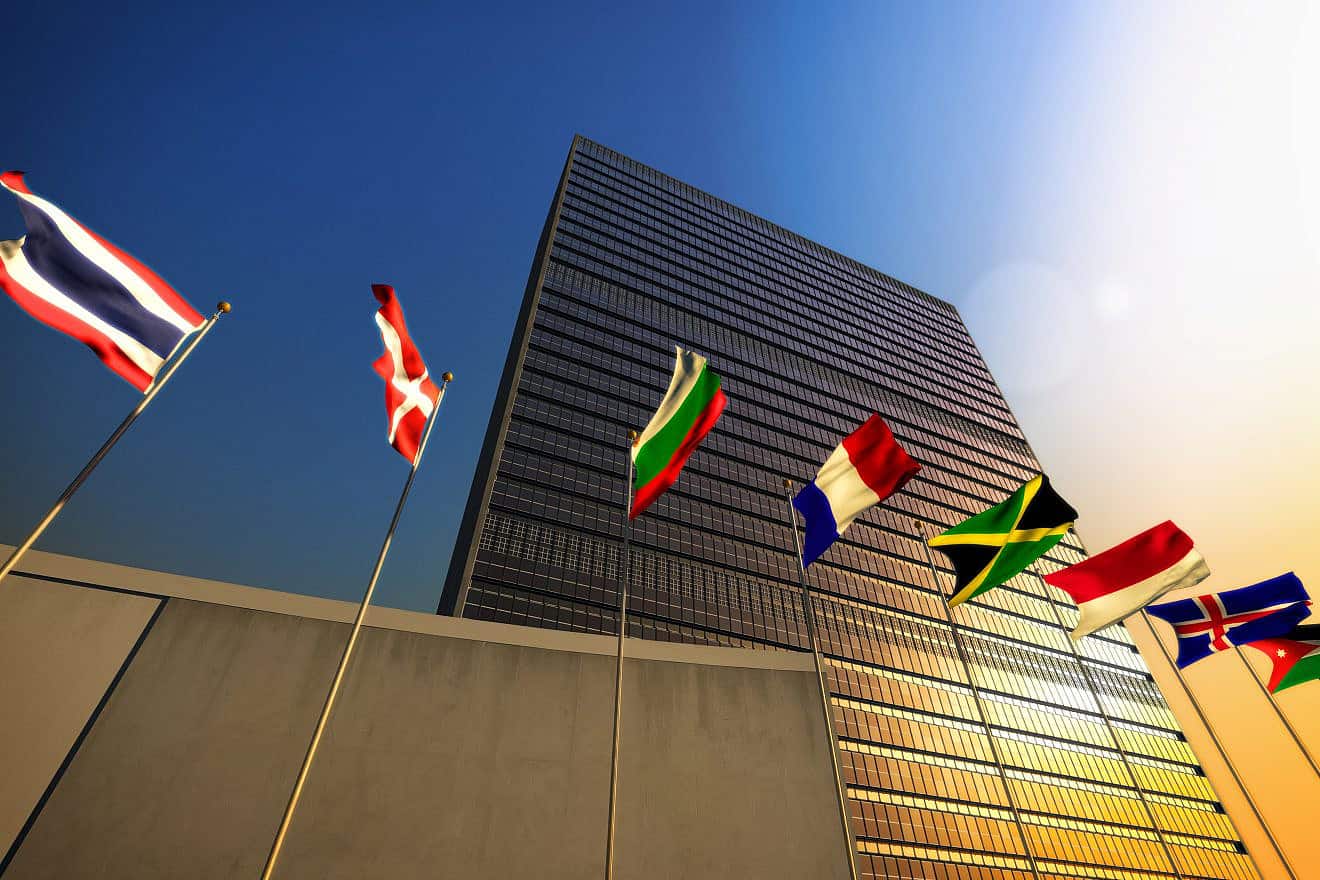Almost 80 years ago, the nations that stood up to Nazi tyranny founded the United Nations. They came together in the wreckage of World War II and the Holocaust to ensure that the world’s future would be more peaceful and secure.
Yet the United Nations did not treat all nations equally. Its founding charter stated, “Membership in the United Nations is open to all other peace-loving states.” It was understood that there were countries that contributed to peace and security and those that did not. Japan was only allowed to join in 1956. Neither the Federal Republic of Germany nor the German Democratic Republic became members until 1973.
In other words, membership in the United Nations was not open to all nations; only those that embodied a spirit of peace.
Unfortunately, as the world body nears its 79th birthday, it has jettisoned many of those founding principles. It has become the sum of its parts. The majority of its member-states are not free or democratic. As a result, the U.N. often serves the interest of malign actors.
For example, in a report issued last year, the NGO Freedom House assessed that only 14 members of the 47-member U.N. Human Rights Council could be considered “free.” Some 70% of the council members were assessed as “partly free” or “not free.”
Recently, the Islamic Republic of Iran became chair of the U.N. Conference on Disarmament. Iran has constantly and consistently breached its international obligations on disarmament, especially regarding its nuclear weapons program.
The International Atomic Energy Agency (IAEA), which reports to the U.N. General Assembly and Security Council, has long accused Iran of violating its commitments. Only a short time ago, IAEA chief Rafael Grossi warned about Iran’s ongoing attempts to mislead the agency: “The Agency has lost continuity of knowledge in relation to [Iran’s] production and inventory of centrifuges, rotors and bellows, heavy water and uranium ore concentrate.”
As a result of its systemic flaws, the U.N. has been unable to meet many pressing global challenges. These include international and regional instability, rampant poverty, threats to the environment and health, and the lack of basic human rights in many nations.
The problem goes even deeper; for example, malign actors appropriate U.N. conferences and concerns to deflect and distract from their own shortcomings. Worse still, they exploit the United Nations to harm free, open and democratic nations.
We have seen this on multiple occasions, particularly concerning Israel. One notorious case was the World Conference Against Racism, Racial Discrimination, Xenophobia and Related Intolerance, which was held in Durban, South Africa in 2001. Rather than deal with the issues at hand, the conference descended into an anti-Israel and antisemitic hate fest.
Ambassador Sally Mansfield, then the Australian Permanent Representative to the United Nations in Geneva, stated: “Instead of achieving a consensus document that could be embraced by all states—the kind of consensus document befitting such an important cause as fighting racism—the World Conference Against Racism and the subsequent Durban Review Conference were misused by a handful of states to serve an anti-Israel agenda. The Durban Declaration is tainted by this unconscionable bias.”
At Durban, hatred of Israel superseded the need to deal with racism and xenophobia, letting down billions of people who face these inhumane phenomena.
The U.N. was once an important institution intended to stop war and discrimination and ensure greater stability and freedom. It has become an organization that has little time or resources to deal with these issues because it is too obsessed with one country and one conflict. Worse still, autocratic states use and abuse this obsession to ensure that they are the judges and not the judged.
The United Nations is definitely broken, but it can be fixed if enough well-meaning countries say “enough.” Democratic nations are a minority in all U.N. institutions, but they contribute a disproportionate percentage of the U.N.’s budget. Without the democracies footing the bill, the agency would collapse.
This means that the democracies hold the key to repairing it.
I have worked closely with several U.N. institutions and their leaders for many years, and I have a great appreciation for many of them as top professionals. I know what is possible and even contemplated behind the scenes. One necessary reform is a more balanced approach and greater authority to the U.N.’s professional structures. For example, the appointment of official rapporteurs to the Human Rights Council must be more professional and independent and less politically or ideologically motivated.
The democracies should state publicly that they are returning to the original spirit of the United Nations. They should demand that it treat all member-states equally rather than single out one for persecution. It should be made clear that, if this does not happen, the money will be cut off.
This is in the interests of all humanity, much of which does not have a voice, full rights or hope for a better future.
For all our sakes, we need a United Nations that works to protect the innocent and the needy, not their oppressors. We must help return it to the spirit of its founding.


























